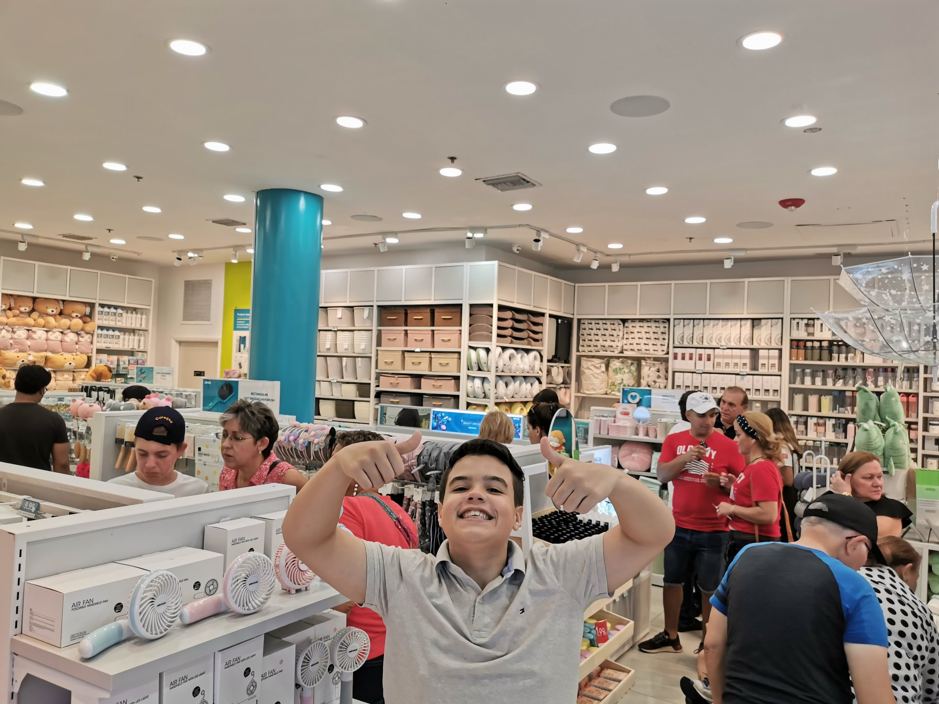Business
Six Deadly Traps to Kill Your Franchise Business

Have you ever considered joining a franchise like XIMIVOGUE, Subway or 7 Eleven? Franchises provide many advantages such as industry-specific training and hardware support, which can be extremely beneficial for newcomers. However, traps are also everywhere in this business battlefield, and today we are going to share six deadly actions you can take to destroy your stores.
1. Research on only one franchise
Making no comparison and not allowing yourself to have more selection may be the worst thing you can ever do in starting a franchise business. You would like to have at least three companies in the same industry you prefer, and each of them should be researched in great detail that allows you to make informed decisions. For instance, if you are into the fast fashion department store, put more efforts in researching XIMIVOGUE, MINISO and Daiso and find out which one suits you the most.
2. Not having sufficient capital/Overshooting
Although you may be working with a franchising giant, financial risks in running the business are possible. Some newcomers could run out of money quickly because of the underestimation to the store’s overhead costs. Under-preparation for cash flow can also result in capital deficiency, which causes problems in the short run.
There are two solutions without borrowing any money and in debt at the beginning of your career. Firstly, conduct thorough research on the capital investments on your preferred franchise firms. Make sure you consult your franchisor once you are engaging with them for financial advice to manage your cash flow more efficiently.
3. Ignoring your staff and store capacity
A grand opening is desirable for every new franchisee; however, you should consider your staff capacity in handling customers.
Some owners pushed their marketing efforts to the maximum before the open day and hoping to attract as many local consumers as possible. If your staff and store are not capable of serving that many customers, influences on your store can be harmful. Comments such as ‘bad customer experience’, ‘over-crowded’, ‘too messy’ are bad for getting your business rolling. Therefore, being patient and striking for a balance is vital for success.
Secondly, assess your financial capacity and avoid overshooting. As an entrepreneur, you could be aggressively investing your money and hoping the store grow exponentially. Things would not go as ideal in reality, and you should always have a backup plan and capitals if anything goes wrong. There is no such thing as being too prepared.
4. Believing that you know everything
Overconfidence can be the stupidest thing that happened to you as a business person. Even though you could have experienced background in business, it does not mean you know all industries, let alone being the best franchisee.
Modesty and consistent learning are the keys. Ask the franchisor and your fellow franchisees for their view in making your business better. Since you are all in the same group with a shared goal, it should be reasonably easy to consult them when you are unsure about making a crucial decision. XIMIVOGUE like to assign a manager from the headquarters to assist owners and provide advice and strategy on your decisions. You cannot imagine how valuable those conversations and guidance could be, and how significant they are to push your business to be successful.
5. Thinking a franchise model fits everyone
Although being in a franchise has fewer risks than establishing a personal business, the model may not fit your management style. Once you are in it, you have little to say how the store can run. The franchisor requires their investors to maintain consistency across all store; the best way to achieve this goal is to control as many aspects of its franchise stores as possible. Therefore, you need to be one hundred percent sure that you can play by franchisor’s rules.
6. Over-investing into the franchise
Even if you are in love with your business, avoid investing too much as it can be risky, and the effect may be irreversible. There are two primary conditions where people can over-invest: over-confidence and ego to take over.
Firstly, they are too confident in the market reaction at the beginning of the cycle. Initial consumer curiosity can cause a positive sales performance during this period; once the trend is gone, your sales would also be gone. Secondly, the attempt to take over the market by dumping a considerable amount of cash at once is dangerous. Make sure to have a solid budget plan that can carry your business in the long run.
Conclusion

In addition to these six traps we discussed, you also need to choose your financial sources carefully and reading their Franchise Disclosure Document thoroughly with a third-party consultant. As an entrepreneur, managing each step with due diligence ensures your business runs in the long term and protect it from any unnecessary loss. Furthermore, investing in growing and large franchises like XIMIVOGUE can reduce the risks as well.
For more info, Please visit https://www.ximiso.com/.
Business
Spynn’s PR Playbook for Startups Turning Funding into Market Leadership

Byline: Jennyfer Ann Valencia
The recent funding boom in India, where startups raised over $428 million between March 10 and March 15, 2025, reinforces the critical role of public relations (PR) in securing investor confidence and enhancing visibility. As competition intensifies, effective PR strategies help startups differentiate themselves and build a strong market presence.
Spynn, a PR agency for startups specializing in securing top-tier media coverage, enables startups to craft compelling narratives that attract investors and maintain a positive brand image.
The Role of PR in Startup Funding
A recent survey conducted by Spynn found that startups with a strong PR strategy are significantly more likely to secure funding rounds than those without. According to the research, nearly 70% of investors say media visibility and brand credibility helped their decision-making process. This highlights PR’s direct impact on a startup’s ability to attract investment.
PR helps startups articulate their value to investors by securing media coverage and highlighting their growth potential. High-profile placements lend credibility and set up startups’ potential, making them more attractive to investors. For instance, a well-publicized success story from a startup like Zolve, one of the top funding recipients, can drive further investor interest and strengthen its brand.
India’s funding surge spans sectors including Batterytech, Edtech, Gaming, Apparel, Aerospace, Manufacturing, Fintech, Energy, and Travel. While this presents opportunities, it also brings scrutiny. Startups must manage their reputations effectively, ensuring consistency in their messaging across media platforms. As a PR agency for startups, Spynn’s expertise in reputation management helps businesses navigate these challenges by maintaining a cohesive brand identity and reinforcing investor trust.
Establishing Credibility Through Media Placements
Research from Spynn also revealed that startups that get featured on Forbes, Business Insider, and other top-tier publications experience a 50% increase in inbound investor inquiries within six months. This shows the value of securing strategic media placements to reinforce credibility and market positioning.
Strong media coverage bolsters a startup’s credibility, reinforcing its market positioning and investor confidence. Spynn ensures startups secure coverage in authoritative outlets, helping them establish themselves as thought leaders. Beyond initial publicity, Spynn focuses on building long-term relationships with media, ensuring sustained visibility and brand consistency.
Spynn’s CEO, Matteo Ferretti, emphasizes the role of storytelling, “Effective PR is about coverage and creating narratives that resonate with audiences. Startups must highlight their unique value and demonstrate how they solve real-world problems.”
PR for Growth and Global Expansion
Spynn’s data indicates that startups leveraging international PR strategies are twice as likely to successfully attract foreign investors and expand into new markets. Media coverage tailored for global audiences enhances cross-border recognition and facilitates partnerships, making PR an essential tool for growth beyond domestic markets.
As Indian startups scale, a strong PR strategy facilitates global recognition. Spynn’s international media reach helps startups gain traction in new markets and attract foreign investors. This is especially crucial for sectors like Fintech and Edtech, where global expansion is key to success.
A well-executed PR strategy strengthens a startup’s digital footprint, ensuring a consistent and engaging presence across platforms. Matteo Ferretti highlights the importance of balance, “A successful PR approach integrates both digital and traditional media to maximize impact and audience engagement.“
Ethical Considerations and Future Trends
Transparency and ethical storytelling are vital in PR. Startups must ensure authenticity in their messaging to build lasting trust. Spynn upholds ethical PR practices that align with principles of sustainability and integrity.
Indian startups must adapt to evolving PR trends, including AI-driven outreach, digital media dominance, and deeper media relationships. As competition grows, startups that take advantage of PR will have a better standing for long-term success.
Spynn’s PR strategies equip Indian startups with the tools to navigate funding surges, enhance credibility, and drive growth. By securing impactful media coverage and managing reputation effectively, startups can strengthen investor confidence and expand their market presence. As India’s startup ecosystem evolves, PR remains an indispensable asset for sustained success.
-

 Tech4 years ago
Tech4 years agoEffuel Reviews (2021) – Effuel ECO OBD2 Saves Fuel, and Reduce Gas Cost? Effuel Customer Reviews
-

 Tech6 years ago
Tech6 years agoBosch Power Tools India Launches ‘Cordless Matlab Bosch’ Campaign to Demonstrate the Power of Cordless
-

 Lifestyle6 years ago
Lifestyle6 years agoCatholic Cases App brings Church’s Moral Teachings to Androids and iPhones
-

 Lifestyle4 years ago
Lifestyle4 years agoEast Side Hype x Billionaire Boys Club. Hottest New Streetwear Releases in Utah.
-

 Tech6 years ago
Tech6 years agoCloud Buyers & Investors to Profit in the Future
-

 Lifestyle5 years ago
Lifestyle5 years agoThe Midas of Cosmetic Dermatology: Dr. Simon Ourian
-

 Health6 years ago
Health6 years agoCBDistillery Review: Is it a scam?
-

 Entertainment6 years ago
Entertainment6 years agoAvengers Endgame now Available on 123Movies for Download & Streaming for Free
